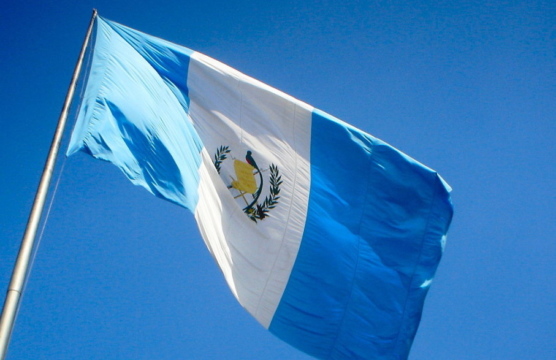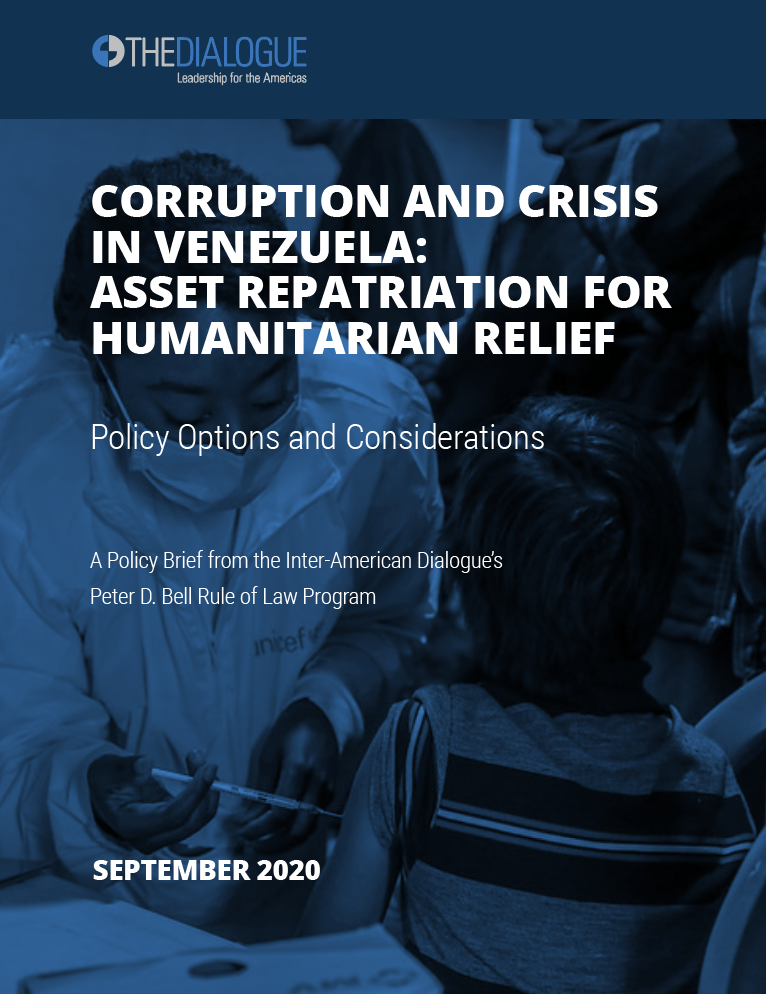
Are Countries Making Progress in Fighting Corruption?
Which countries in the region are making strides in fighting corruption, and which are falling short?
Venezuelans once resided in the richest country in South America. Now they survive with electricity and water shortages, food handouts, and a public health system on the verge of collapse amidst a global pandemic. Perhaps the only thing more staggering than the scale of Venezuela’s economic and humanitarian collapse is its cause. Venezuela was not afflicted by war or natural disaster, but by leaders acting with gross incompetence and greed. Today, prosecutors in the United States and beyond are in court seeking to recover billions of dollars stolen by Venezuelan officials and their cronies.
A major new report from the Dialogue’s Peter D. Bell Rule of Law Program analyzes one of the salient features of contemporary Venezuela—rampant corruption—and presents detailed proposals for repatriating stolen assets for the benefit of the Venezuelan people. Against the backdrop of the ongoing institutional breakdown and complex humanitarian emergency in the country, the report outlines the underlying conditions, legal framework, comparative case studies, and policy considerations that should drive and shape efforts to return corruption-linked assets to the Venezuelan people.
This report builds on the Dialogue’s longstanding interest and attention to the situation in Venezuela and in particular on the work of our Venezuela Working Group, a task force of regional experts created in 2018 to develop and advance actionable policy responses to the Venezuelan crisis.
Both the UN Convention against Corruption (UNCAC) and US Government policy dictate that the recovered proceeds of Venezuelan corruption should be returned to the country’s people. Asset repatriation to Venezuela should occur only with sufficient guarantees that recovered assets can be returned in an effective, transparent, and accountable manner. The mechanics of doing so are complex and will likely remain so as long as the regime of Nicolás Maduro remains entrenched in Caracas. Nonetheless, workable vehicles exist for using the recovered proceeds of Venezuelan corruption to address the country’s humanitarian emergency, and the scale of this emergency renders such efforts urgent and vital. With some asset recovery cases nearing the final procedural stages, US policymakers should immediately begin examining mechanisms for repatriating corruption-linked assets to the Venezuelan people.
Options for repatriating corruption-linked assets to Venezuela include:
Follow our report online with #VenezuelaDDHH.
This report is made possible thanks to support from the Open Society Foundations.
Which countries in the region are making strides in fighting corruption, and which are falling short?
Organized criminal groups pose an increasing risk to democracy and the rule of law in El Salvador.
Over the past weeks, public discontent with the administration of President Dilma Rousseff has continued to rise.

 Video
Video